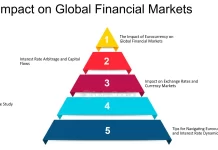The world’s largest oil user, the United States, saw signs of stronger economic development on Thursday, which contributed to an increase in oil prices. Major producers are maintaining output cuts, raising concerns about a smaller supply.
As of 04:43 GMT, June Brent futures were up 31 cents, or 0.4%, at $89.66 per barrel. The May contract for U.S. West Texas Intermediate (WTI) increased by 30 cents, or 0.4%, to $85.73 a barrel.
Top ministers from the Organisation of Petroleum Exporting Countries and its allies (OPEC+), which includes Russia, met on Wednesday and maintained the current oil supply strategy while pressuring certain nations to increase adherence to output reductions.
The group promised that some participants would make up for the first quarter’s excess inventory. It further stated that instead of export restrictions, Russia would go to output.
Oil prices increased further, according to ING analysts, after the meeting’s recommendation to stick with the current OPEC+ output guideline.
After rising for the previous four days, the June Brent contract and the May WTI contract finished on Wednesday at their highest levels since late October.
The ING analysts stated, “Brent is encountering some resistance at the US$90/bbl level, with it unable to break above it so far.”
Jerome Powell, the chair of the Federal Reserve, expressed caution on Wednesday on potential interest rate reductions in the future due to recent statistics that revealed higher-than-expected inflation and job growth.
The remarks were encouraging for oil since they pointed to strong economic growth in the United States, according to Rob Haworth, senior investment strategist for the asset management business at U.S. Bank.
Recent increases in oil prices have been caused by fears that the Israel-Hamas conflict in Gaza may spread to Iran, potentially interrupting supplies in the vital Middle East region, as well as Ukrainian strikes on Russian facilities that cut off fuel supplies.
Iran has threatened to exact revenge on Israel in response to an attack that claimed the lives of senior Iranian military officers on Monday. Iran ranks third among OPEC’s producers.
ANZ analysts stated in a note on Thursday that “although this (OPEC+ decision) was widely expected, it provides some assurance that the recent rise in tension in the Middle East has not altered the group’s view on the market.”





























